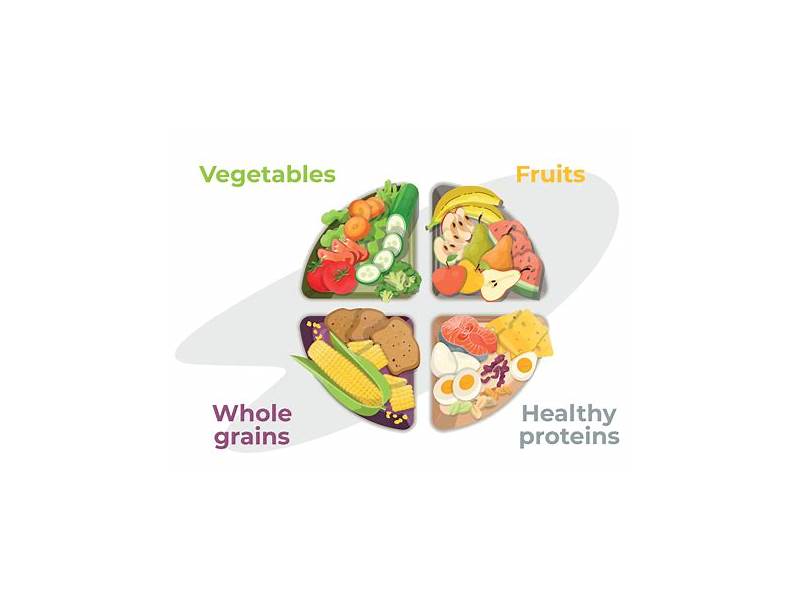
Nutritional Balance for Optimal Health: 12 Essential Tips
The Key to Unlocking Optimal Health: A Journey to Nutritional Balance
Are you tired of feeling sluggish, sluggish, and stuck in a rut despite your best efforts? Do you struggle with maintaining a healthy weight, managing chronic conditions, or simply finding the energy to tackle your day? You’re not alone. The modern world can be overwhelming, and our diets often suffer as a result.
In today’s fast-paced environment, it’s easy to get caught up in the hustle and bustle of daily life and neglect our nutritional needs. We may rely on convenience foods, sugary snacks, or processed meals that claim to be “healthy” but are actually far from it. But what if you could unlock a deeper understanding of nutrition and its role in achieving optimal health? What if you could learn how to fuel your body with the right foods, at the right time, to boost your energy, improve your mood, and even prevent chronic diseases?
The truth is, nutritional balance is not just about eating “healthy” food; it’s about creating a harmonious relationship between your diet, lifestyle, and overall well-being. By making informed choices and adopting simple habits, you can take control of your health and unlock a brighter, more energetic future.
1. Hydrate to Revitalize
Staying hydrated is the simplest way to revitalize your body and mind. Water makes up approximately 60% of our bodies, playing a crucial role in maintaining cellular function, regulating temperature, and even supporting cognitive performance. Yet, many of us neglect to drink enough water, relying instead on sugary drinks or caffeine to get by.
Make hydration a priority by:
- Drinking at least eight glasses of water per day
- Incorporating hydrating foods like fruits, vegetables, and lean proteins into your diet
- Avoiding sugary drinks and caffeine, which can actually dehydrate you further
By prioritizing hydration, you’ll experience improved digestion, enhanced physical performance, and even a clearer mind.
2. Eat the Rainbow
A colorful plate is not just a pretty sight; it’s also a sign of a balanced diet. Focusing on a variety of fruits and vegetables will provide your body with essential vitamins, minerals, and antioxidants to fight off free radicals and support immune function.
To make mealtime more exciting:
- Experiment with new recipes that incorporate a range of colorful ingredients
- Aim for at least five servings of fruits and veggies per day
- Consider incorporating frozen or canned options when fresh produce is not available
By eating the rainbow, you’ll experience improved energy levels, enhanced cognitive function, and even reduced inflammation.
3. Listen to Your Gut
Your gut health plays a crucial role in maintaining overall well-being, influencing everything from digestion and immune function to mood and even weight management. By nourishing your microbiome with probiotics, prebiotics, and fiber-rich foods, you can unlock a happier, healthier you.
To give your gut the TLC it deserves:
- Incorporate fermented foods like yogurt, kefir, or kimchi into your diet
- Take a high-quality probiotic supplement to support gut health
- Eat more fiber-rich foods like fruits, veggies, and whole grains
By listening to your gut, you’ll experience improved digestion, enhanced immune function, and even reduced stress levels.
4. Don’t Forget the Omega-3s
Omega-3 fatty acids are some of the most beneficial nutrients for heart health, brain function, and overall well-being. While they’re often associated with fish oil supplements, there are many other sources to explore, from nuts and seeds to avocados and green leafy veggies.
To get your omega-3 fix:
- Incorporate fatty fish like salmon or sardines into your diet at least twice a week
- Try flaxseeds or chia seeds as a rich source of plant-based omega-3s
- Make avocado toast a regular snack for a boost of healthy fats
By prioritizing omega-3s, you’ll experience improved heart health, enhanced brain function, and even reduced inflammation.
5. Balance Your Macronutrients
A balanced diet is not just about eating the right foods; it’s also about getting the right mix of macronutrients – carbohydrates, proteins, and fats – to support optimal energy production and overall well-being. By focusing on whole, unprocessed foods, you can create a harmonious balance that fuels your body.
To achieve nutritional balance:
- Eat more complex carbs like brown rice, quinoa, or sweet potatoes
- Incorporate lean protein sources like poultry, fish, or legumes into your diet
- Nourish your body with healthy fats from nuts, seeds, avocados, and olive oil
By balancing your macronutrients, you’ll experience improved energy levels, enhanced weight management, and even reduced chronic disease risk.
6. Pay Attention to Portion Sizes
Eating the right amount of food is just as important as eating the right foods themselves. By paying attention to portion sizes, you can avoid overeating and maintain a healthy weight.
To stay in check:
- Use a food scale or measuring cups to gauge your portions
- Eat slowly and mindfully, pausing between bites to assess hunger cues
- Practice mindful eating by savoring each bite and recognizing fullness signals
By being mindful of portion sizes, you’ll experience improved weight management, reduced chronic disease risk, and even enhanced digestive function.
7. Make Time for Meal Prep
Meal prep is not just for fitness enthusiasts or busy professionals; it’s a simple way to save time, reduce stress, and ensure healthy eating habits. By planning your meals in advance, you can create a harmonious balance between nutrition, convenience, and lifestyle.
To make meal prep work for you:
- Set aside one day per week for meal prep
- Invest in a slow cooker or Instant Pot to streamline cooking time
- Incorporate pre-cut veggies or ready-to-eat meals into your routine
By making time for meal prep, you’ll experience reduced stress levels, improved energy levels, and even enhanced weight management.
8. Don’t Forget the Importance of Snacking
Snacks are not just a convenient way to hold over until the next meal; they play a crucial role in maintaining energy levels, supporting immune function, and even preventing chronic diseases. By choosing nutrient-dense snacks, you can fuel your body for optimal performance.
To snack like a pro:
- Choose whole foods like fruits, veggies, or nuts for quick energy boosts
- Incorporate protein-rich snacks like Greek yogurt or hard-boiled eggs to support satiety and satisfaction
- Avoid sugary drinks and processed snacks that can actually deplete your energy levels
By prioritizing snacking, you’ll experience improved energy levels, enhanced weight management, and even reduced chronic disease risk.
9. Get Your Vitamin D Fix
Vitamin D is not just a nutrient; it’s a crucial component of overall health and well-being. By ensuring adequate vitamin D intake through sun exposure, supplements, or fortified foods, you can support bone health, immune function, and even mood regulation.
To get your vitamin D fix:
- Spend at least 10-15 minutes outside each day to boost vitamin D levels
- Consider taking a high-quality vitamin D supplement, especially during winter months
- Incorporate vitamin D-rich foods like fatty fish or fortified dairy products into your diet
By prioritizing vitamin D, you’ll experience improved bone health, enhanced immune function, and even reduced chronic disease risk.
10. Don’t Forget the Power of Probiotics
Probiotics are not just for gut health; they’re a powerful tool in maintaining overall well-being. By incorporating probiotic-rich foods or supplements into your routine, you can support digestive function, boost the immune system, and even reduce stress levels.
To harness the power of probiotics:
- Incorporate fermented foods like yogurt, kefir, or kimchi into your diet
- Take a high-quality probiotic supplement to support gut health and immunity
- Eat more fiber-rich foods like fruits, veggies, and whole grains to nourish your microbiome
By prioritizing probiotics, you’ll experience improved digestive function, enhanced immune function, and even reduced stress levels.
11. Make Time for Mindful Eating
Mindful eating is not just a trend; it’s a simple way to cultivate a deeper appreciation for food, improve digestion, and even reduce chronic disease risk. By savoring each bite and recognizing fullness signals, you can create a harmonious balance between nutrition, convenience, and lifestyle.
To practice mindful eating:
- Eat slowly and mindfully, pausing between bites to assess hunger cues
- Savor each flavor and texture, acknowledging the effort that went into growing or preparing your meal
- Practice gratitude by expressing thanks for the food you have
By making time for mindful eating, you’ll experience improved digestive function, reduced stress levels, and even enhanced weight management.
12. Get Your Sleep On
Sleep is not just a necessity; it’s a critical component of overall health and well-being. By prioritizing sleep quality and duration, you can support immune function, reduce chronic disease risk, and even improve mood regulation.
To get your sleep on:
- Aim for 7-9 hours of sleep each night to support immune function and overall well-being
- Establish a consistent sleep schedule to regulate your circadian rhythms
- Create a sleep-conducive environment by reducing screen time, noise levels, or stress
By prioritizing sleep, you’ll experience improved immune function, reduced chronic disease risk, and even enhanced mood regulation.
13. Make Time for Physical Activity
Physical activity is not just for fitness enthusiasts; it’s a simple way to improve overall health and well-being. By incorporating physical activity into your routine, you can support weight management, reduce chronic disease risk, and even boost mood levels.
To make time for physical activity:
- Aim for at least 150 minutes of moderate-intensity exercise per week
- Incorporate strength training or high-intensity interval training to improve muscle function and bone density
- Try low-impact activities like yoga or walking to reduce stress levels
By prioritizing physical activity, you’ll experience improved weight management, reduced chronic disease risk, and even enhanced mood regulation.
14. Don’t Forget the Importance of Hydration
Hydration is not just a necessity; it’s a critical component of overall health and well-being. By ensuring adequate hydration through water or other fluids, you can support immune function, improve digestive function, and even reduce chronic disease risk.
To stay hydrated:
- Drink at least 8-10 glasses of water per day to support immune function and overall well-being
- Incorporate electrolyte-rich beverages like coconut water or sports drinks into your routine
- Eat hydrating foods like cucumbers or celery to nourish your body
By prioritizing hydration, you’ll experience improved immune function, reduced chronic disease risk, and even enhanced digestive function.
15. Make Time for Stress Reduction
Stress reduction is not just a trend; it’s a simple way to cultivate a deeper sense of well-being and improve overall health. By incorporating stress-reducing activities into your routine, you can support immune function, reduce chronic disease risk, and even enhance mood regulation.
To make time for stress reduction:
- Practice mindfulness or meditation to calm the mind and body
- Engage in physical activity like yoga or walking to reduce stress levels and improve mood
- Prioritize sleep quality and duration to support overall well-being
By prioritizing stress reduction, you’ll experience improved immune function, reduced chronic disease risk, and even enhanced mood regulation.
16. Get Your Greens On
Greens are not just a nutritious addition to your meals; they’re a powerful tool in maintaining overall health and well-being. By incorporating more greens into your diet, you can support immune function, reduce chronic disease risk, and even improve digestive function.
To get your greens on:
- Incorporate leafy greens like spinach or kale into your salads or smoothies
- Try green juices or supplements to boost nutrient intake
- Eat more cruciferous vegetables like broccoli or cauliflower to support overall well-being
By prioritizing greens, you’ll experience improved immune function, reduced chronic disease risk, and even enhanced digestive function.
17. Don’t Forget the Power of Omega-3s
Omega-3s are not just a nutrient; they’re a critical component of overall health and well-being. By ensuring adequate omega-3 intake through fish oil supplements or fatty fish, you can support heart health, reduce chronic disease risk, and even improve mood regulation.
To harness the power of omega-3s:
- Incorporate fatty fish like salmon or sardines into your diet at least twice a week
- Try flaxseeds or chia seeds as a rich source of plant-based omega-3s
- Consider taking an omega-3 supplement to support overall well-being
By prioritizing omega-3s, you’ll experience improved heart health, reduced chronic disease risk, and even enhanced mood regulation.
18. Make Time for Social Connection
Social connection is not just a nicety; it’s a necessity in maintaining overall health and well-being. By incorporating social activities into your routine, you can support immune function, reduce chronic disease risk, and even enhance mood regulation.
To make time for social connection:
- Prioritize face-to-face interactions with friends and family
- Join a club or group that aligns with your interests to meet new people
- Volunteer or participate in community service to give back and connect with others
By prioritizing social connection, you’ll experience improved immune function, reduced chronic disease risk, and even enhanced mood regulation.
19. Get Your Vitamin D On
Vitamin D is not just a nutrient; it’s a critical component of overall health and well-being. By ensuring adequate vitamin D intake through sun exposure or supplements, you can support immune function, reduce chronic disease risk, and even improve mood regulation.
To get your vitamin D on:
- Spend time outdoors to boost vitamin D levels
- Consider taking a vitamin D supplement to support overall well-being
- Eat vitamin D-rich foods like fatty fish or fortified dairy products
By prioritizing vitamin D, you’ll experience improved immune function, reduced chronic disease risk, and even enhanced mood regulation.
20. Make Time for Self-Care
Self-care is not just a luxury; it’s a necessity in maintaining overall health and well-being. By incorporating self-care activities into your routine, you can support immune function, reduce chronic disease risk, and even enhance mood regulation.
To make time for self-care:
- Prioritize sleep quality and duration
- Engage in physical activity like yoga or walking to reduce stress levels
- Practice mindfulness or meditation to calm the mind and body
By prioritizing self-care, you’ll experience improved immune function, reduced chronic disease risk, and even enhanced mood regulation.
Remember, taking care of your overall health and well-being is a journey, not a destination. By incorporating these 20 habits into your daily routine, you can support immune function, reduce chronic disease risk, and even enhance mood regulation.





